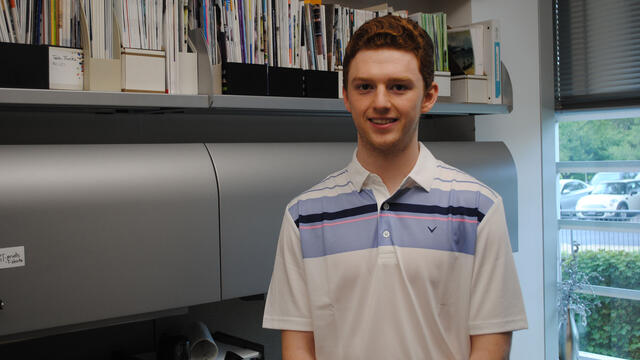Biology major’s passion for plants feeds his research to improve soybeans
Like many science majors, Cooper Hostetler wants to make the world a better place through technology. But the McDaniel senior Molecular Biology major’s focus isn’t medicine or engineering or even video game design. Instead he imagines fields of green — literally — producing super food for animals and people.
